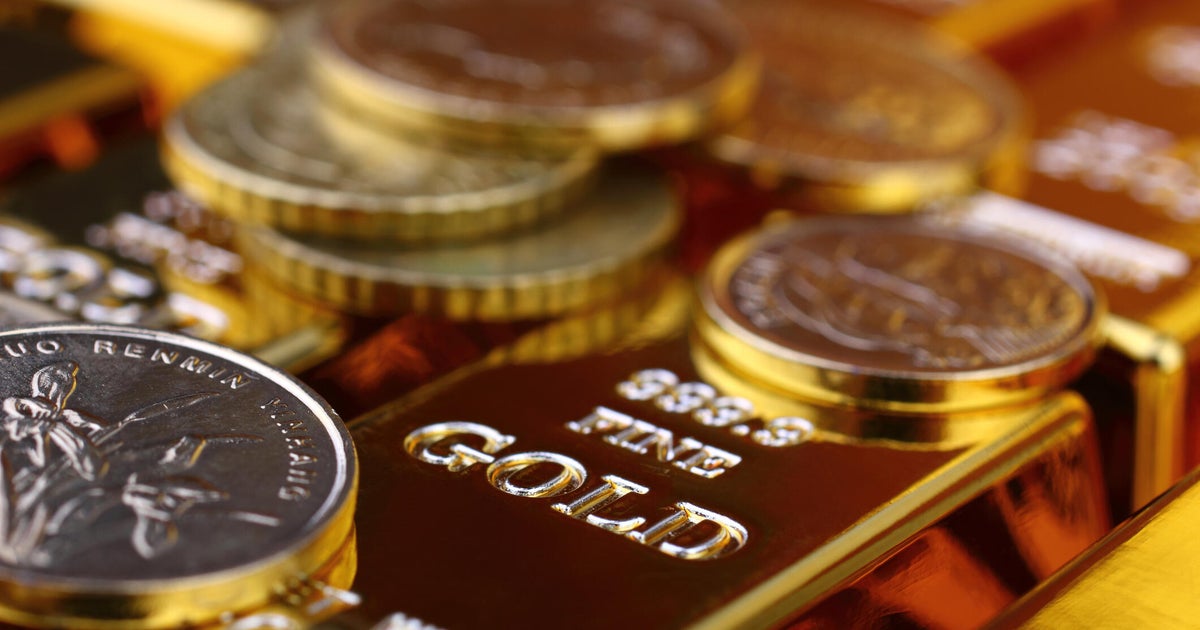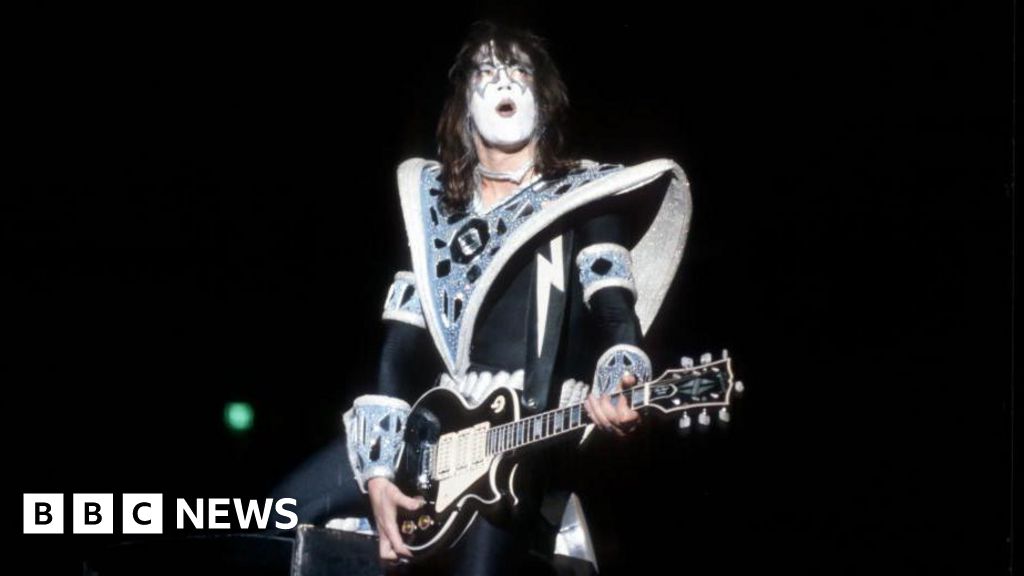The world is pouring out some cold gin for the late, great Ace Frehley, the guitar spaceman of Kiss. Frehley died last night from complications after a fall, at 74. He summed up the archetypal Seventies guitar hero if anyone did — the space cadet from the planet Jendell. He epitomized the band’s comic-book superhero persona, with his silver makeup, his platform space boots, his charismatic DGAF slouch. But his sound was primal rock power, blasting his Les Paul through a Marshall stack for the deranged solos of “Shock Me,” “Strange Ways,” and “She.” The most beloved native son of Jendell is coming home.
Kiss were all about mystique — and nobody had more of it than Ace. In a band of sensible businessmen, Ace was truly the wild one, the one who really did rock & roll all night and party every day, causing chaos wherever he went. Ace cheated death many times, whether he was zooming his DeLorean the wrong way down the Bronx River Parkway at 100 mph or meeting the Phantom of the Park. Kiss was a band full of mythical characters: Paul Stanley as the Starchild, Gene Simmons as the Demon, Peter Criss as the Cat. But Space Ace was his character.
“I eat, sleep, and drink my character,” Ace told Rolling Stone in 1977. “It is my fantasy to go to another planet. By the time I’m 40, interplanetary travel will be common. Nobody will want to talk to me at that age anyway. Stardom is a temporary phase. You become a candidate for the nuthouse when you believe that what you are is everlasting.”
He definitely didn’t envision a future where he’d still be famous nearly 50 years later: “I’m gonna be on Mars. It doesn’t fuckin’ matter. This planet won’t be here in 50 years.”
Paul Daniel Frehley grew up in the Bronx, getting his mind blown at 15 when he witnessed the Who’s first U.S. show. He joined the other three guys in Kiss when they placed an ad in the Village Voice classifieds. “Lead Guitarist Wanted with Flash and Ability,” the ad declared. “No time wasters please.” Ace definitely didn’t waste their time. He was just 21, still living with his parents in the Bronx, but he was already oozing star power — the kind of kid who gets the nickname “Ace” when he’s just 16. His mom drove him to the Kiss audition. They shook their heads at his fashion sense — but flash and ability were never a problem for this guy.
Ace became a cult figure to Seventies kids with his rock-star pose on the cover of Kiss’ Alive!, the album that made them famous. Kiss actually weren’t selling many records at that point, barely keeping their heads above water, but the cover photo of Alive! presented them as larger-than-life superheroes in a world of their own, towering over the kids in the audience. The cover made them stars, arguably more than the actual album did. Ace holds center stage, knees bent, slung low to the ground, brandishing his Gibson while Gene and Paul preen on either side of him. (The Cat is all but hidden in the smoke.)
The band members strut their stuff on the cover of Alive! — even though they’re just posing in an empty Detroit theater, rather than at an actual Kiss show. As Gene Simmons said, “If you look at it, you’ll see Ace is holding his guitar upside down.”
But that sums up Ace’s star power — he didn’t need his guitar to be right side up, or plugged in, for him to summon his Space Ace cool and preside as the otherworldly chaos agent at the heart of Kiss. (It’s so fitting that there was no actual audience in the room for the cover of Alive!, the most famous live album that nobody seriously believes was recorded live.) He was key to how Kiss inspired bands from Chic to Mötley Crüe, from the Ramones to Weezer, to step right into the fantasy and leave the world behind. For the Gen X bands of the Nirvana/Pearl Jam/Rage Against the Machine era, Ace was their first guitar hero, the one who commanded them to follow in his footsteps.
Ace wrote classics like “Shock Me,” inspired by a real-life near-electrocution moment, and “Cold Gin,” inspired by real-life cold gin. “Shock Me” was the first time he ever tried singing lead on a Kiss tune, a surprisingly belated and modest debut, but an unforgettable performance. In so many ways, it always felt like Ace was singing directly to the audience, to the Kiss Army that plugged him in and kept him high. “Your lightning’s all I need,” Ace wailed. “My satisfaction grows/You make me feel at ease/You even make me glow.”
Rock stardom worked that way for Ace — he was always a bare wire without any insulation, overloading and often blowing out, with the fans as his power source. He didn’t seem to want to exist offstage. The other guys could wash off their makeup and go back to real life, at least in theory, but Ace was all rock star, all the time. He needed the electricity of the audience the way they needed him — the kids craved his glitter-glam grandeur and reflected it back to him. Nobody in the band partied the way Ace did, a famously self-destructive whirlwind who once drank a bottle of perfume in case it had any alcohol in it. He was one of the great characters in the rock world, with his squeaky voice and famous choking-dragon “ack!” noise of a laugh. Like his bandmates, he was an unlikely but devoted buddy of the guys in Rush, one of the all-time most beloved rock-band odd couples. As Geddy Lee told Rolling Stone, “We would get high with Ace Frehley in his hotel room and make him laugh.”
You could always tell it was Ace playing lead, with his unhinged noise blasts in “Strange Ways” or “100,000 Years” or “Calling Dr. Love.” As he told Rolling Stone in 2014, “Page, Clapton, Hendrix, Townshend, Beck — all I did was copy their solos and kind of twist them around, and you’ve got a guitar style.” Part of the Ace mystique was how cool it sounded when Paul Stanley said his name, especially on Alive 2! He always seemed so ethereal and otherworldly, even more disconnected from reality than his bandmates — he seemed to come at the world sideways, whether musically or visually, with his lurching posture and ambling gait. But he was a born comedian, as best seen in the band’s classic 1979 full-makeup interview with Tom Snyder on The Tomorrow Show. Ace’s laugh is as abrasively deranged as his guitar, as he explains to the host, “I think this outfit is self-explanatory.”
In 1978, Kiss pulled off one of the decade’s most legendary monuments to rock-star hubris: four simultaneous solo albums, one apiece from each member of the band, released on the same day. To everyone’s surprise, Ace stole the show with his album, with the smash “New York Groove.” It’s one of the crown jewels of the Kiss canon, a plucky little Russ Ballard song that previously went Top 10 in the U.K. for the glitter-pop chancers Hello. But it took on a new glimmer with a coating of Ace’s space dust. Every detail of “New York Groove” sounds sleek and oversized — the stomp-stomp-stomp chorus chant, the rubber-band-man guitar quiver, the cha-cha beat, and his declamatory vocals, as he declares, “It’s gonna be ecstasy! This place was meant for me!”
For a guy who claimed to be insecure about his vocal prowess, Ace is all swagger, peacocking his way through the city with a fistful of dollars and wicked ladies pursuing him. It’s a Big Apple anthem on the level of Sinatra and Biggie. No wonder it’s a jock staple — they play it at Citi Field every time the Mets win. And there’s something beautiful about the fact that Gene Simmons and Ace Frehley never stopped arguing about whose solo album sold better — although there’s no denying that Ace’s left the bigger bootprint on history. (To be fair, Gene’s album was top-notch, with the shoulda-been hit “Radioactive” and his tender rendition of the Disney ballad “When You Wish Upon a Star,” not to mention the cartoon of Gene dribbling blood on the label of the vinyl.)
Ace left the band in 1982 — right before they took their leap of faith by washing off the makeup and beginning their massive comeback with hits like “Lick It Up” and “Heaven’s on Fire.” He kept rolling with Frehley’s Comet, rejoining the band for their massively successful 1996 reunion tour with the makeup back on. The last time he played with them was at the 2002 Winter Olympics in Salt Lake City. “My problem is that God gave me too many gifts,” he told Rolling Stone’s Brian Hiatt in 2014. He titled his memoir No Regrets, but later remembered a few, so he planned a sequel, saying, “The working title is Some Regrets.” He was making music till the end, with his 2024 album, 10,000 Volts, and always remained his unimpeachable Space Ace self, with his unique mix of extraterrestrial glow and Bronx grit. This place was meant for him. Fly on forever, spaceman.
Source link

